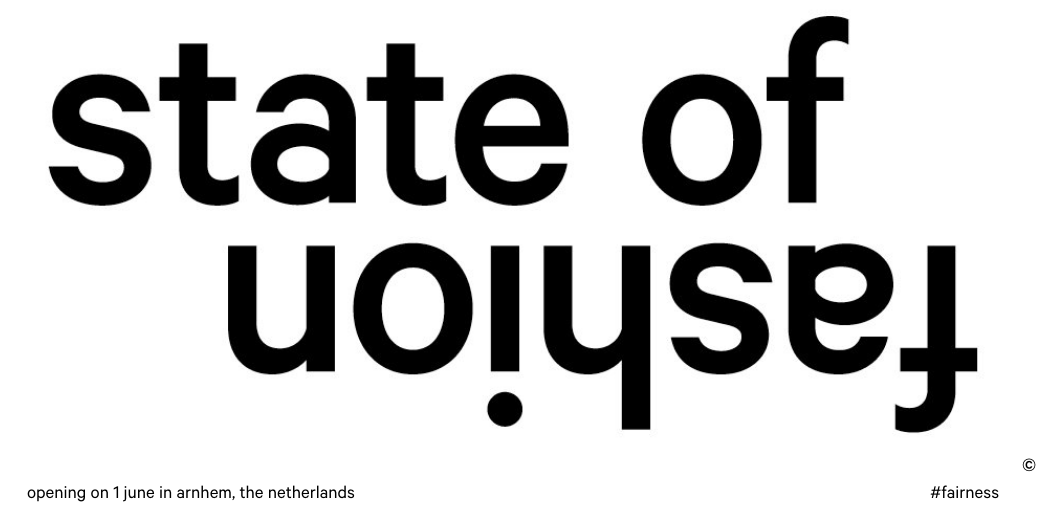In the past two years I am regularly practicing mindfulness. This gave me new insights and doubts about the fashion industry. I will tell you my brain waves in this article and at the same time explain you more about ‘the state of fashion 2018’ which is a project that will start the 1st of June.
For me mindfulness means being in the moment, in the now, enjoying the things that happen at that moment. For example the warm sunshine on my face, a bird singing, my favorite song on the radio, enjoying a good cup of tea, the laugh of my daughter or working in the garden and seeing a beautiful flower.
Practicing mindfulness (meditation) made me wonder how important fashion is for me. And with the word fashion in this article I mean the way we show how we look through clothes, accessories and home items. One day after a meditation I thought “Why not wear the same outfit all the time, like the monks do and show my identity solely through what I do instead of what I wear."
Practicing mindfulness (meditation) made me wonder how important fashion is for me. And with the word fashion in this article I mean the way we show how we look through clothes, accessories and home items. One day after a meditation I thought “Why not wear the same outfit all the time, like the monks do and show my identity solely through what I do instead of what I wear."
But then on the other hand I still like to change what I wear, because something has a beautiful texture, shape or colour. For me there is always this love-hate relation with fashion. I would love to fully embrace the concept of slow fashion, wearing the same outfit for a long time, that is made in a fair way with the right materials. And because I then wear it for a long time the energy for growing/harvesting/making is well spend. But on the other hand I love the ‘new’, the changing aesthetics and the desire, from fast fashion. However this must be done in such a way we do not harm the environment by using up resources.
It would be so good if we could find ways to make both fashion timelines (slow and fast) in a circular way, with materials and production methods that are fair for humans and earth.
It would be so good if we could find ways to make both fashion timelines (slow and fast) in a circular way, with materials and production methods that are fair for humans and earth.
In June starts a large scale international event called “State of fashion 2018” I quote:
Fashion no longer seems to be in touch with the standards and values of our current time. Fashion still presents the image of a world of classic glamour and status, a luxury dream that is no longer appealing or relevant nowadays. The Millennial generation has exchanged the car for the bike and having possessions is making way for a sharing economy.
Something has to change, that much is clear, but nobody knows how or where to begin. Nevertheless, there are numerous initiatives and projects worldwide that approach fashion and clothing in a fundamentally different way. Initiatives that do not primarily think about fashion from an economic position, or use sustainability as a cheap marketing trick, but operate on the basis of radically different questions. How can fashion contribute to a better living environment, while still fulfilling an aesthetic desire? Can an ultimate consumer good still be produced in an ecologically and socially responsible way? And how can fashion truly express the ethical standards and values of this era.
To learn more about the event go to
Fashion no longer seems to be in touch with the standards and values of our current time. Fashion still presents the image of a world of classic glamour and status, a luxury dream that is no longer appealing or relevant nowadays. The Millennial generation has exchanged the car for the bike and having possessions is making way for a sharing economy.
Something has to change, that much is clear, but nobody knows how or where to begin. Nevertheless, there are numerous initiatives and projects worldwide that approach fashion and clothing in a fundamentally different way. Initiatives that do not primarily think about fashion from an economic position, or use sustainability as a cheap marketing trick, but operate on the basis of radically different questions. How can fashion contribute to a better living environment, while still fulfilling an aesthetic desire? Can an ultimate consumer good still be produced in an ecologically and socially responsible way? And how can fashion truly express the ethical standards and values of this era.
To learn more about the event go to




 RSS Feed
RSS Feed